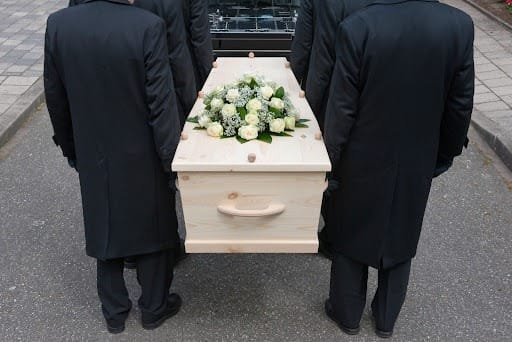Losing a loved one is an incredibly challenging time. The emotional toll can be overwhelming, and planning a funeral involves a number of decisions and tasks that must be handled with care and precision. Funeral planning can be a complex and detailed process, varying widely based on the family’s preferences, cultural practices, and the type of funeral service they envision.

Having a proper funeral planning checklist can help ensure that all aspects of the process are covered and nothing is overlooked. Although some funeral arrangements can be completed within a matter of days, others may take longer, depending on factors such as religious customs, venue availability, and the desired type of service. Understanding how long it takes to plan a funeral and how to navigate the process is vital to managing this emotionally charged time.
Proper planning allows families to honor their loved one’s final wishes while also addressing necessary legal, logistical, and emotional requirements. This guide will walk you through the steps, timeline, and considerations involved in planning a funeral, as well as tips for expediting the process in urgent situations
Understanding the Funeral Planning Process
Planning a funeral service is a multi-step process that requires careful attention to detail. Each family will approach funeral planning differently, influenced by cultural, religious, and personal preferences. Whether you are planning a funeral service, cremation, or a memorial event, it’s important to understand how long it takes to plan a funeral, as this can vary depending on several key factors.
From selecting the funeral type to coordinating with a funeral director, here are the main stages involved in planning a funeral:
Immediate Steps Following a Loved One’s Passing

When a loved one passes away, there are several immediate steps that families typically take to begin the funeral process. One of the first tasks is to obtain a death certificate, which is a required document for many aspects of the funeral process and legal matters. This certificate often involves initial paperwork, and in some cases, an autopsy may be necessary.
Once the death certificate is obtained, family members begin notifying other relatives and close friends. Many families will also start planning the obituary announcement and deciding on the format of the memorial service. All of these steps contribute to setting the stage for a respectful and meaningful farewell.
Choosing Between Burial and Cremation
A major decision that comes early in the funeral planning process is choosing between burial and cremation services. Traditional funerals generally involve burial, while cremation provides an alternative way to honor a loved one. Each option comes with its own set of associated services, such as embalming, interment, or the use of a casket or urn.
The family’s preferences, along with the deceased’s final wishes, play a significant role in deciding which path to take. Additionally, cultural and religious beliefs may heavily influence the decision between burial and cremation, and these factors can impact the overall funeral planning timeline.
Some families may prefer a traditional burial with a ceremony, while others may opt for a simpler cremation service followed by a memorial or scattering ceremony. Knowing the different options and discussing them as a family can help streamline the decision-making process.
Essential Factors Influencing Funeral Arrangement Timeline
Legal Requirements and Documentation
The length of time it takes to plan a funeral can vary depending on a number of factors, including the type of service, the legal documentation required, and venue availability. On average, it takes about 3 to 7 days to plan a funeral, depending on how quickly decisions are made and how many elements are involved.
If the family is opting for a traditional burial, this may take a little longer to arrange due to the necessary permits, casket selection, and venue booking. However, if the family is planning a cremation or direct burial with fewer services, it may be completed more quickly.

Here are some key factors that may influence how long it takes to plan a funeral:
- Venue Availability: Best Funeral Homes Houston may have limited availability, requiring you to adjust your timeline or select a different date.
- Legal Documentation and Certification: Obtaining the death certificate and other necessary paperwork can take several days.
- Cultural and Religious Considerations: Some cultures or religions may require specific rituals or services that add time to the planning process.
How Long Does a Funeral Last?

The duration of a funeral service can vary depending on the type of service and the family’s preferences. A typical funeral lasts anywhere from 30 minutes to 2 hours, though longer ceremonies may be held, especially if there are significant cultural or religious practices involved. Memorial services or celebrations of life may also vary in duration depending on how elaborate or intimate they are.
If a viewing or visitation is part of the funeral process, this may add additional hours to the event. Typically, viewings last anywhere from one hour to several hours, with some families opting for multiple sessions over a day or two. The total time commitment for a funeral, including services, transportation, and post-funeral gatherings, can range from several hours to an entire day.
Essential Factors Influencing Funeral Arrangement Timeline
Legal Requirements and Documentation
Legal documentation is one of the most crucial elements of funeral planning. Obtaining a death certificate is one of the first steps in the process, and it is required for many aspects of the funeral and related legal matters. This documentation can take a few days to process, especially if an autopsy or investigation is involved.
Some state laws may also dictate waiting periods for certain actions, such as cremation or embalming, which can lead to delays. Understanding the legal aspects early in the process can help prevent unexpected delays and ensure that the planning proceeds smoothly.
Cultural and Religious Practices
Many families have specific cultural or religious customs that must be observed during the funeral process. These customs can include specific rituals, services, or timelines. For example, some cultures require that a body be buried within a certain number of hours or days, while others may have extended periods for visitation or memorial services.
Family members may also request certain attire, music, or readings that align with their traditions, all of which must be coordinated with the funeral home. Working with a funeral director who understands your cultural or religious needs can ensure that everything is properly planned and executed according to tradition.
Availability of Funeral Services and Venues
Securing the ideal venue and coordinating with the funeral home can present challenges when planning a funeral. Popular funeral homes and chapels may have limited availability, especially during peak times, which can affect the timing of the service. This may require flexibility and adjustments to the planned timeline.
A skilled funeral director can assist families in navigating these challenges, helping them secure a venue and coordinate other services, such as transportation and floral arrangements. If the preferred venue is unavailable, funeral directors may suggest alternative options that meet the family’s needs.
Steps to Expedite the Funeral Planning Process
Pre-Planning Funeral Arrangements
One of the best ways to expedite the funeral planning process is through pre-planning. Pre-arranging funeral services ensures that an individual’s final wishes are known and documented in advance, saving family members from making tough decisions during a stressful time.
By having pre-arranged services, such as cremation or burial preferences, families can avoid delays and focus on honoring the loved one’s memory. Pre-planning allows for important decisions, like selecting the casket or urn, to be handled ahead of time, allowing families to proceed confidently when the time comes.
Coordinating with a Funeral Director
A skilled and experienced funeral director is essential in expediting the funeral planning process. They handle the intricacies of the arrangements, from managing the death certificate paperwork to coordinating services with venues and other providers. Funeral directors are well-versed in the logistical aspects of the funeral planning process, making them invaluable in reducing delays and ensuring that everything runs smoothly.
A knowledgeable funeral director can also assist in accommodating special requests, whether it’s arranging a specific viewing, organizing a cultural ceremony, or arranging transportation for out-of-town guests.
How Quickly Can a Funeral Be Arranged in Urgent Situations?
In urgent situations, funerals can be arranged within a matter of days. Best Funeral homes Houston are experienced in managing expedited services, ensuring that essential decisions are made promptly while still allowing the family to honor their loved one in a respectful and meaningful way. With the support of a dedicated funeral director, families can move through the necessary steps quickly, from obtaining the death certificate to organizing the memorial service.
Conclusion
The timeline for arranging a funeral varies based on several factors, such as legal documentation, cultural customs, venue availability, and the type of service chosen. While some arrangements can be completed within a few days, others may take longer, especially when cultural practices or specific service requests are involved.
By following a comprehensive funeral planning checklist and working closely with an experienced funeral director, families can navigate the process with ease. Best Funeral homes Houston provide valuable guidance throughout this difficult time, ensuring that families can create a respectful farewell for their loved ones.
Remember, planning a funeral is a highly personal process, and every family’s needs are unique. Whether you’re wondering how long does it take to plan a funeral? or looking for guidance on how to plan for a funeral? a compassionate funeral director can help ensure that every detail is taken care of with care and respect.
Frequently Asked Questions
How long does it take to arrange a funeral?
The time it takes to arrange a funeral depends on several factors. Typically, funeral arrangements take 3 to 7 days, but cultural, legal, and personal preferences can extend this timeline.
How long does a funeral last?
Funerals generally last between 30 minutes to 2 hours. The length of the service depends on the type of service and family preferences.
How can pre-planning a funeral expedite the process?
Pre-planning a funeral allows families to make decisions ahead of time, reducing the time spent on arranging services after the death occurs. It helps avoid delays and ensures the deceased’s wishes are honored.

